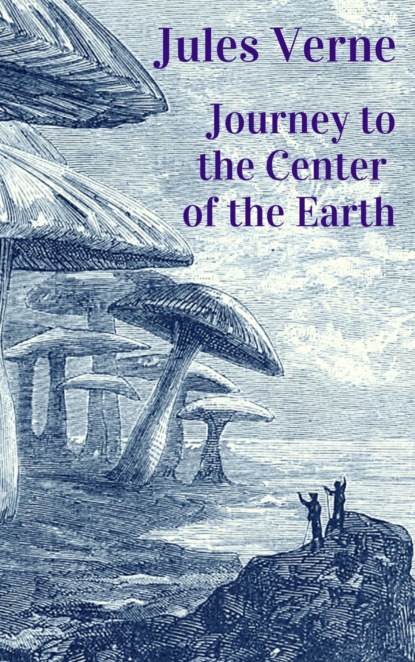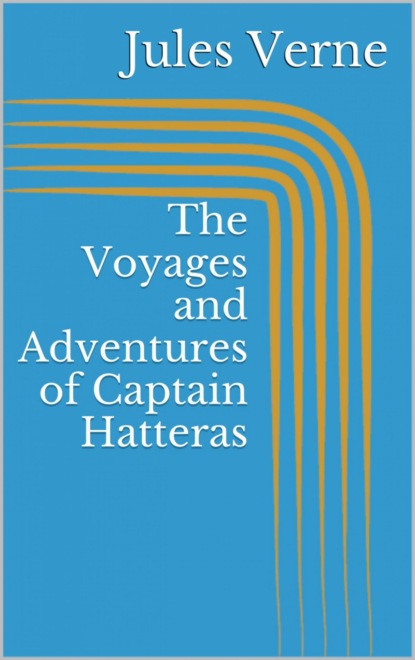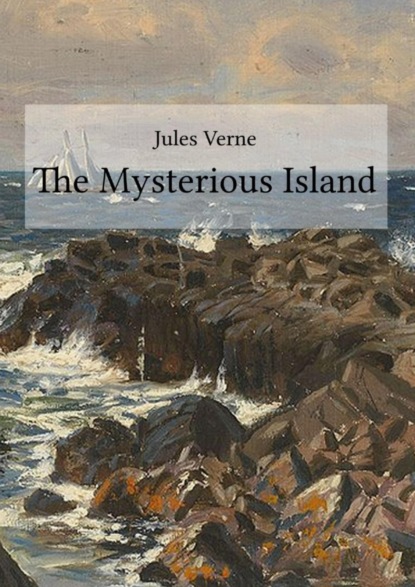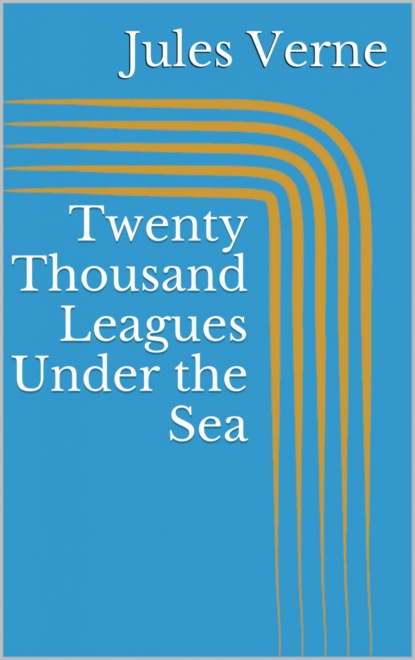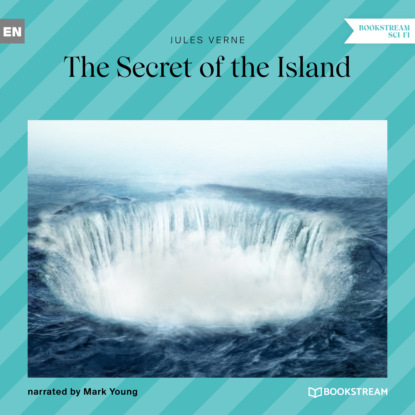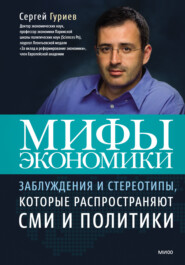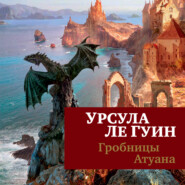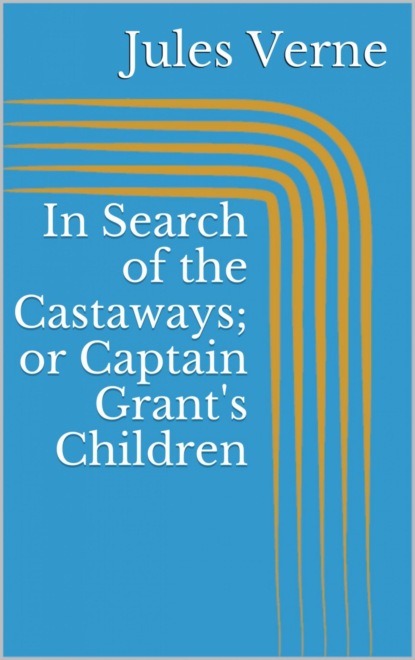 Текст
Текст Полная версия
- О книге
- Читать
South America
Chapter I.
The Shark
ON the 26th of July, 1864, a magnificent yacht was steaming along the North Channel at full speed, with a strong breeze blowing from the N. E. The Union Jack was flying at the mizzen-mast, and a blue standard bearing the initials E. G., embroidered in gold, and surmounted by a ducal coronet, floated from the topgallant head of the main-mast. The name of the yacht was the DUNCAN, and the owner was Lord Glenarvan, one of the sixteen Scotch peers who sit in the Upper House, and the most distinguished member of the Royal Thames Yacht Club, so famous throughout the United Kingdom.
Lord Edward Glenarvan was on board with his young wife, Lady Helena, and one of his cousins, Major McNabbs.
The DUNCAN was newly built, and had been making a trial trip a few miles outside the Firth of Clyde. She was returning to Glasgow, and the Isle of Arran already loomed in the distance, when the sailor on watch caught sight of an enormous fish sporting in the wake of the ship. Lord Edward, who was immediately apprised of the fact, came up on the poop a few minutes after with his cousin, and asked John Mangles, the captain, what sort of an animal he thought it was.
"Well, since your Lordship asks my opinion," said Mangles, "I think it is a shark, and a fine large one too."
"A shark on these shores!"
"There is nothing at all improbable in that," returned the captain. "This fish belongs to a species that is found in all latitudes and in all seas. It is the 'balance-fish,' or hammer-headed shark, if I am not much mistaken. But if your Lordship has no objections, and it would give the smallest pleasure to Lady Helena to see a novelty in the way of fishing, we'll soon haul up the monster and find out what it really is."
"What do you say, McNabbs? Shall we try to catch it?" asked Lord Glenarvan.
"If you like; it's all one to me," was his cousin's cool reply.
"The more of those terrible creatures that are killed the better, at all events," said John Mangles, "so let's seize the chance, and it will not only give us a little diversion, but be doing a good action."
"Very well, set to work, then," said Glenarvan.
Lady Helena soon joined her husband on deck, quite charmed at the prospect of such exciting sport. The sea was splendid, and every movement of the shark was distinctly visible. In obedience to the captain's orders, the sailors threw a strong rope over the starboard side of the yacht, with a big hook at the end of it, concealed in a thick lump of bacon. The bait took at once, though the shark was full fifty yards distant. He began to make rapidly for the yacht, beating the waves violently with his fins, and keeping his tail in a perfectly straight line. As he got nearer, his great projecting eyes could be seen inflamed with greed, and his gaping jaws with their quadruple row of teeth. His head was large, and shaped like a double hammer at the end of a handle. John Mangles was right. This was evidently a balance-fish—the most voracious of all the SQUALIDAE species.
The passengers and sailors on the yacht were watching all the animal's movements with the liveliest interest. He soon came within reach of the bait, turned over on his back to make a good dart at it, and in a second bacon and contents had disappeared. He had hooked himself now, as the tremendous jerk he gave the cable proved, and the sailors began to haul in the monster by means of tackle attached to the mainyard. He struggled desperately, but his captors were prepared for his violence, and had a long rope ready with a slip knot, which caught his tail and rendered him powerless at once. In a few minutes more he was hoisted up over the side of the yacht and thrown on the deck. A man came forward immediately, hatchet in hand, and approaching him cautiously, with one powerful stroke cut off his tail.
This ended the business, for there was no longer any fear of the shark. But, though the sailors' vengeance was satisfied, their curiosity was not; they knew the brute had no very delicate appetite, and the contents of his stomach might be worth investigation. This is the common practice on all ships when a shark is captured, but Lady Glenarvan declined to be present at such a disgusting exploration, and withdrew to the cabin again. The fish was still breathing; it measured ten feet in length, and weighed more than six hundred pounds. This was nothing extraordinary, for though the hammer-headed shark is not classed among the most gigantic of the species, it is always reckoned among the most formidable.
The huge brute was soon ripped up in a very unceremonious fashion. The hook had fixed right in the stomach, which was found to be absolutely empty, and the disappointed sailors were just going to throw the remains overboard, when the boatswain's attention was attracted by some large object sticking fast in one of the viscera.
"I say! what's this?" he exclaimed.
"That!" replied one of the sailors, "why, it's a piece of rock the beast swallowed by way of ballast."
"It's just a bottle, neither more nor less, that the fellow has got in his inside, and couldn't digest," said another of the crew.
"Hold your tongues, all of you!" said Tom Austin, the mate of the DUNCAN. "Don't you see the animal has been such an inveterate tippler that he has not only drunk the wine, but swallowed the bottle?"
"What!" said Lord Glenarvan. "Do you mean to say it is a bottle that the shark has got in his stomach."
"Ay, it is a bottle, most certainly," replied the boatswain, "but not just from the cellar."
"Well, Tom, be careful how you take it out," said Lord Glenarvan, "for bottles found in the sea often contain precious documents."
"Do you think this does?" said Major McNabbs, incredulously.
"It possibly may, at any rate."
"Oh! I'm not saying it doesn't. There may perhaps be some secret in it," returned the Major.
"That's just what we're to see," said his cousin. "Well, Tom."
"Here it is," said the mate, holding up a shapeless lump he had managed to pull out, though with some difficulty.
"Get the filthy thing washed then, and bring it to the cabin."
Tom obeyed, and in a few minutes brought in the bottle and laid it on the table, at which Lord Glenarvan and the Major were sitting ready with the captain, and, of course Lady Helena, for women, they say, are always a little curious. Everything is an event at sea. For a moment they all sat silent, gazing at this frail relic, wondering if it told the tale of sad disaster, or brought some trifling message from a frolic-loving sailor, who had flung it into the sea to amuse himself when he had nothing better to do.
However, the only way to know was to examine the bottle, and Glenarvan set to work without further delay, so carefully and minutely, that he might have been taken for a coroner making an inquest.
He commenced by a close inspection of the outside. The neck was long and slender, and round the thick rim there was still an end of wire hanging, though eaten away with rust. The sides were very thick, and strong enough to bear great pressure. It was evidently of Champagne origin, and the Major said immediately, "That's one of our Clicquot's bottles."
Nobody contradicted him, as he was supposed to know; but Lady Helena exclaimed, "What does it matter about the bottle, if we don't know where it comes from?"
"We shall know that, too, presently, and we may affirm this much already—it comes from a long way off. Look at those petrifactions all over it, these different substances almost turned to mineral, we might say, through the action of the salt water! This waif had been tossing about in the ocean a long time before the shark swallowed it."
"I quite agree with you," said McNabbs. "I dare say this frail concern has made a long voyage, protected by this strong covering."
"But I want to know where from?" said Lady Glenarvan.
"Wait a little, dear Helena, wait; we must have patience with bottles; but if I am not much mistaken, this one will answer all our questions," replied her husband, beginning to scrape away the hard substances round the neck. Soon the cork made its appearance, but much damaged by the water.
"That's vexing," said Lord Edward, "for if papers are inside, they'll be in a pretty state!"
"It's to be feared they will," said the Major.
"But it is a lucky thing the shark swallowed them, I must say," added Glenarvan, "for the bottle would have sunk to the bottom before long with such a cork as this."
"That's true enough," replied John Mangles, "and yet it would have been better to have fished them up in the open sea. Then we might have found out the road they had come by taking the exact latitude and longitude, and studying the atmospheric and submarine currents; but with such a postman as a shark, that goes against wind and tide, there's no clew whatever to the starting-point."
"We shall see," said Glenarvan, gently taking out the cork. A strong odor of salt water pervaded the whole saloon, and Lady Helena asked impatiently: "Well, what is there?"
"I was right!" exclaimed Glenarvan. "I see papers inside. But I fear it will be impossible to remove them," he added, "for they appear to have rotted with the damp, and are sticking to the sides of the bottle."
"Break it," said the Major.
"I would rather preserve the whole if I could."
"No doubt you would," said Lady Helena; "but the contents are more valuable than the bottle, and we had better sacrifice the one than the other."
"If your Lordship would simply break off the neck, I think we might easily withdraw the papers," suggested John Mangles.
"Try it, Edward, try it," said Lady Helena.
Lord Glenarvan was very unwilling, but he found there was no alternative; the precious bottle must be broken. They had to get a hammer before this could be done, though, for the stony material had acquired the hardness of granite. A few sharp strokes, however, soon shivered it to fragments, many of which had pieces of paper sticking to them. These were carefully removed by Lord Glenarvan, and separated and spread out on the table before the eager gaze of his wife and friends.
Chapter II.
The Three Documents
ALL that could be discovered, however, on these pieces of paper was a few words here and there, the remainder of the lines being almost completely obliterated by the action of the water. Lord Glenarvan examined them attentively for a few minutes, turning them over on all sides, holding them up to the light, and trying to decipher the least scrap of writing, while the others looked on with anxious eyes. At last he said: "There are three distinct documents here, apparently copies of the same document in three different languages. Here is one in English, one in French, and one in German."
"But can you make any sense out of them?" asked Lady Helena.
"That's hard to say, my dear Helena, the words are quite incomplete."
"Perhaps the one may supplement the other," suggested Major McNabbs.
"Very likely they will," said the captain. "It is impossible that the very same words should have been effaced in each document, and by putting the scraps together we might gather some intelligible meaning out of them."
"That's what we will do," rejoined Lord Glenarvan; "but let us proceed methodically. Here is the English document first."
All that remained of it was the following:
62 Bri gow
sink stra
aland
skipp Gr
that monit of long
and ssistance
lost
"There's not much to be made out of that," said the Major, looking disappointed.
"No, but it is good English anyhow," returned the captain.
"There's no doubt of it," said Glenarvan. "The words SINK, ALAND, LOST are entire; SKIPP is evidently part of the word SKIPPER, and that's what they call ship captains often in England. There seems a Mr. Gr. mentioned, and that most likely is the captain of the shipwrecked vessel."
"Well, come, we have made out a good deal already," said Lady Helena.
"Yes, but unfortunately there are whole lines wanting," said the Major, "and we have neither the name of the ship nor the place where she was shipwrecked."
"We'll get that by and by," said Edward.
"Oh, yes; there is no doubt of it," replied the Major, who always echoed his neighbor's opinion. "But how?"
"By comparing one document with the other."
"Let us try them," said his wife.
The second piece of paper was even more destroyed than the first; only a few scattered words remained here and there.
It ran as follows:
7 Juni Glas
zwei atrosen
graus
bringt ihnen
"This is written in German," said John Mangles the moment he looked at it.
"And you understand that language, don't you?" asked Lord Glenarvan.
"Perfectly."
"Come, then, tell us the meaning of these words."
The captain examined the document carefully, and said:
"Well, here's the date of the occurrence first: 7 Juni means June 7; and if we put that before the figures 62 we have in the other document, it gives us the exact date, 7th of June, 1862."
"Capital!" exclaimed Lady Helena. "Go on, John!"
"On the same line," resumed the young captain, "there is the syllable GLAS and if we add that to the GOW we found in the English paper, we get the whole word GLASGOW at once. The documents evidently refer to some ship that sailed out of the port of Glasgow."
"That is my opinion, too," said the Major.
"The second line is completely effaced," continued the Captain; "but here are two important words on the third. There is ZWEI, which means TWO, and ATROSEN or MATROSEN, the German for SAILORS."
"Then I suppose it is about a captain and two sailors," said Lady Helena.
"It seems so," replied Lord Glenarvan.
"I must confess, your Lordship, that the next word puzzles me. I can make nothing of it. Perhaps the third document may throw some light on it. The last two words are plain enough. BRINGT IHNEN means BRING THEM; and, if you recollect, in the English paper we had SSISTANCE, so by putting the parts together, it reads thus, I think: 'BRING THEM ASSISTANCE.'"
"Yes, that must be it," replied Lord Glenarvan. "But where are the poor fellows? We have not the slightest indication of the place, meantime, nor of where the catastrophe happened."
"Perhaps the French copy will be more explicit," suggested Lady Helena.
"Here it is, then," said Lord Glenarvan, "and that is in a language we all know."
The words it contained were these:
troi ats tannia
gonie austral
abor
contin pr cruel indi
jete ongit
et 37 degrees 11" LAT
"There are figures!" exclaimed Lady Helena. "Look!"
"Let us go steadily to work," said Lord Glenarvan, "and begin at the beginning. I think we can make out from the incomplete words in the first line that a three-mast vessel is in question, and there is little doubt about the name; we get that from the fragments of the other papers; it is the BRITANNIA. As to the next two words, GONIE and AUSTRAL, it is only AUSTRAL that has any meaning to us."
"But that is a valuable scrap of information," said John Mangles. "The shipwreck occurred in the southern hemisphere."
"That's a wide world," said the Major.
"Well, we'll go on," resumed Glenarvan. "Here is the word ABOR; that is clearly the root of the verb ABORDER. The poor men have landed somewhere; but where? CONTIN—does that mean continent? CRUEL!"
"CRUEL!" interrupted John Mangles. "I see now what GRAUS is part of in the second document. It is GRAUSAM, the word in German for CRUEL!"
"Let's go on," said Lord Glenarvan, becoming quite excited over his task, as the incomplete words began to fill up and develop their meaning. "INDI,—is it India where they have been shipwrecked? And what can this word ONGIT be part of? Ah! I see—it is LONGITUDE; and here is the latitude, 37 degrees 11". That is the precise indication at last, then!"
"But we haven't the longitude," objected McNabbs.
"But we can't get everything, my dear Major; and it is something at all events, to have the exact latitude. The French document is decidedly the most complete of the three; but it is plain enough that each is the literal translation of the other, for they all contain exactly the same number of lines. What we have to do now is to put together all the words we have found, and translate them into one language, and try to ascertain their most probable and logical sense."
"Well, what language shall we choose?" asked the Major.
"I think we had better keep to the French, since that was the most complete document of the three."
"Your Lordship is right," said John Mangles, "and besides, we're all familiar with the language."
"Very well, then, I'll set to work."
In a few minutes he had written as follows:
7 Juin 1862 trois-mats Britannia Glasgow
sombre gonie austral
a terre deux matelots
capitaine Gr abor
contin pr cruel indi
jete ce document de longitude
et 37 degrees 11" de latitude Portez-leur secours
perdus.
[7th of June, 1862 three-mast BRITANNIA Glasgow]
foundered gonie southern
on the coast two sailors Gr
Captain landed
contin pr cruel indi
thrown this document in longitude
and 37 degrees 11" latitude Bring them assistance
lost
Just at that moment one of the sailors came to inform the captain that they were about entering the Firth of Clyde, and to ask what were his orders.
"What are your Lordship's intentions?" said John Mangles, addressing Lord Glenarvan.
"To get to Dunbarton as quickly as possible, John; and Lady Helena will return to Malcolm Castle, while I go on to London and lay this document before the Admiralty."
The sailor received orders accordingly, and went out to deliver them to the mate.
"Now, friends," said Lord Glenarvan, "let us go on with our investigations, for we are on the track of a great catastrophe, and the lives of several human beings depend on our sagacity. We must give our whole minds to the solution of this enigma."
"First of all, there are three very distinct things to be considered in this document—the things we know, the things we may conjecture, the things we do not know."
"What are those we know? We know that on the 7th of June a three-mast vessel, the BRITANNIA of Glasgow, foundered; that two sailors and the captain threw this document into the sea in 37 degrees 11" latitude, and they entreat help."
"Exactly so," said the Major.
"What are those now we may conjecture?" continued Glenarvan. "That the shipwreck occurred in the southern seas; and here I would draw your attention at once to the incomplete word GONIE. Doesn't the name of the country strike you even in the mere mention of it?"
"Patagonia!" exclaimed Lady Helena.
"Undoubtedly."
"But is Patagonia crossed by the 37th parallel?" asked the Major.
"That is easily ascertained," said the captain, opening a map of South America. "Yes, it is; Patagonia just touches the 37th parallel. It cuts through Araucania, goes along over the Pampas to the north, and loses itself in the Atlantic."
"Well, let us proceed then with our conjectures. The two sailors and the captain LAND—land where? CONTIN—on a continent; on a continent, mark you, not an island. What becomes of them? There are two letters here providentially which give a clew to their fate—PR, that must mean prisoners, and CRUEL INDIAN is evidently the meaning of the next two words. These unfortunate men are captives in the hands of cruel Indians. Don't you see it? Don't the words seem to come of themselves, and fill up the blanks? Isn't the document quite clear now? Isn't the sense self-evident?"
Glenarvan spoke in a tone of absolute conviction, and his enthusiastic confidence appeared contagious, for the others all exclaimed, too, "Yes, it is evident, quite evident!"
After an instant, Lord Edward said again, "To my own mind the hypothesis is so plausible, that I have no doubt whatever the event occurred on the coast of Patagonia, but still I will have inquiries made in Glasgow, as to the destination of the BRITANNIA, and we shall know if it is possible she could have been wrecked on those shores."
"Oh, there's no need to send so far to find out that," said John Mangles. "I have the Mercantile and Shipping Gazette here, and we'll see the name on the list, and all about it."
"Do look at once, then," said Lord Glenarvan.
The file of papers for the year 1862 was soon brought, and John began to turn over the leaves rapidly, running down each page with his eye in search of the name required. But his quest was not long, for in a few minutes he called out: "I've got it! 'May 30, 1862, Peru-Callao, with cargo for Glasgow, the BRITANNIA, Captain Grant.'"
"Grant!" exclaimed Lord Glenarvan. "That is the adventurous Scotchman that attempted to found a new Scotland on the shores of the Pacific."
"Yes," rejoined John Mangles, "it is the very man. He sailed from Glasgow in the BRITANNIA in 1861, and has not been heard of since."
"There isn't a doubt of it, not a shadow of doubt," repeated Lord Glenarvan. "It is just that same Captain Grant. The BRITANNIA left Callao on the 30th of May, and on the 7th of June, a week afterward, she is lost on the coast of Patagonia. The few broken disjointed words we find in these documents tell us the whole story. You see, friends, our conjectures hit the mark very well; we know all now except one thing, and that is the longitude."
"That is not needed now, we know the country. With the latitude alone, I would engage to go right to the place where the wreck happened."
"Then have we really all the particulars now?" asked Lady Helena.
"All, dear Helena; I can fill up every one of these blanks the sea has made in the document as easily as if Captain Grant were dictating to me."
And he took up the pen, and dashed off the following lines immediately: "On the 7th of June, 1862, the three-mast vessel, BRITANNIA, of Glasgow, has sunk on the coast of Patagonia, in the southern hemisphere. Making for the shore, two sailors and Captain Grant are about to land on the continent, where they will be taken prisoners by cruel Indians. They have thrown this document into the sea, in longitude and latitude 37 degrees 11". Bring them assistance, or they are lost."
"Capital! capital! dear Edward," said Lady Helena. "If those poor creatures ever see their native land again, it is you they will have to thank for it."
"And they will see it again," returned Lord Glenarvan; "the statement is too explicit, and clear, and certain for England to hesitate about going to the aid of her three sons cast away on a desert coast. What she has done for Franklin and so many others, she will do to-day for these poor shipwrecked fellows of the BRITANNIA."
"Most likely the unfortunate men have families who mourn their loss. Perhaps this ill-fated Captain Grant had a wife and children," suggested Lady Helena.
"Very true, my dear, and I'll not forget to let them know that there is still hope. But now, friends, we had better go up on deck, as the boat must be getting near the harbor."
A carriage and post-horses waited there, in readiness to convey Lady Helena and Major McNabbs to Malcolm Castle, and Lord Glenarvan bade adieu to his young wife, and jumped into the express train for Glasgow.
But before starting he confided an important missive to a swifter agent than himself, and a few minutes afterward it flashed along the electric wire to London, to appear next day in the Times and Morning Chronicle in the following words: "For information respecting the fate of the three-mast vessel BRITANNIA, of Glasgow, Captain Grant, apply to Lord Glenarvan, Malcolm Castle, Luss, Dumbartonshire, Scotland."




